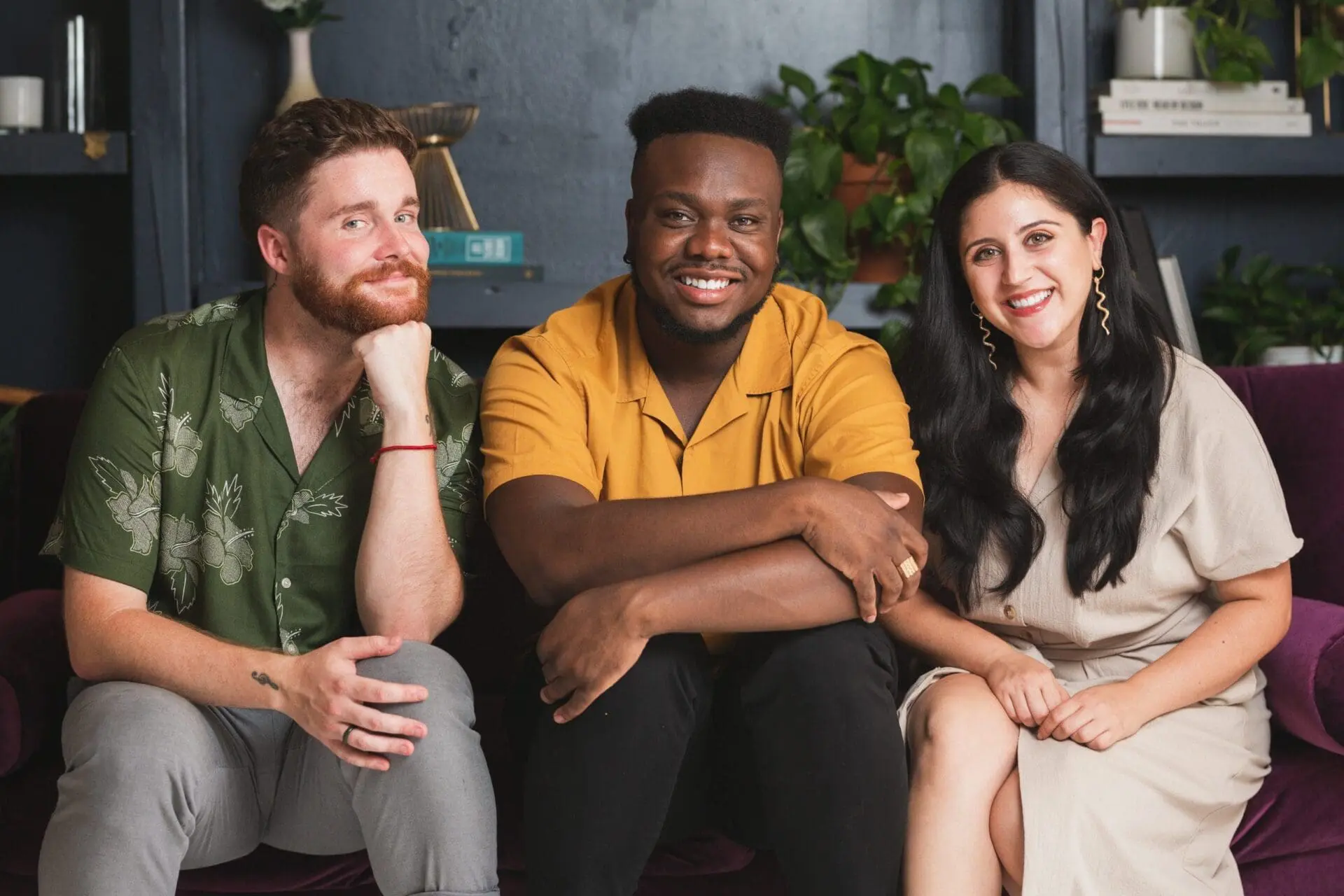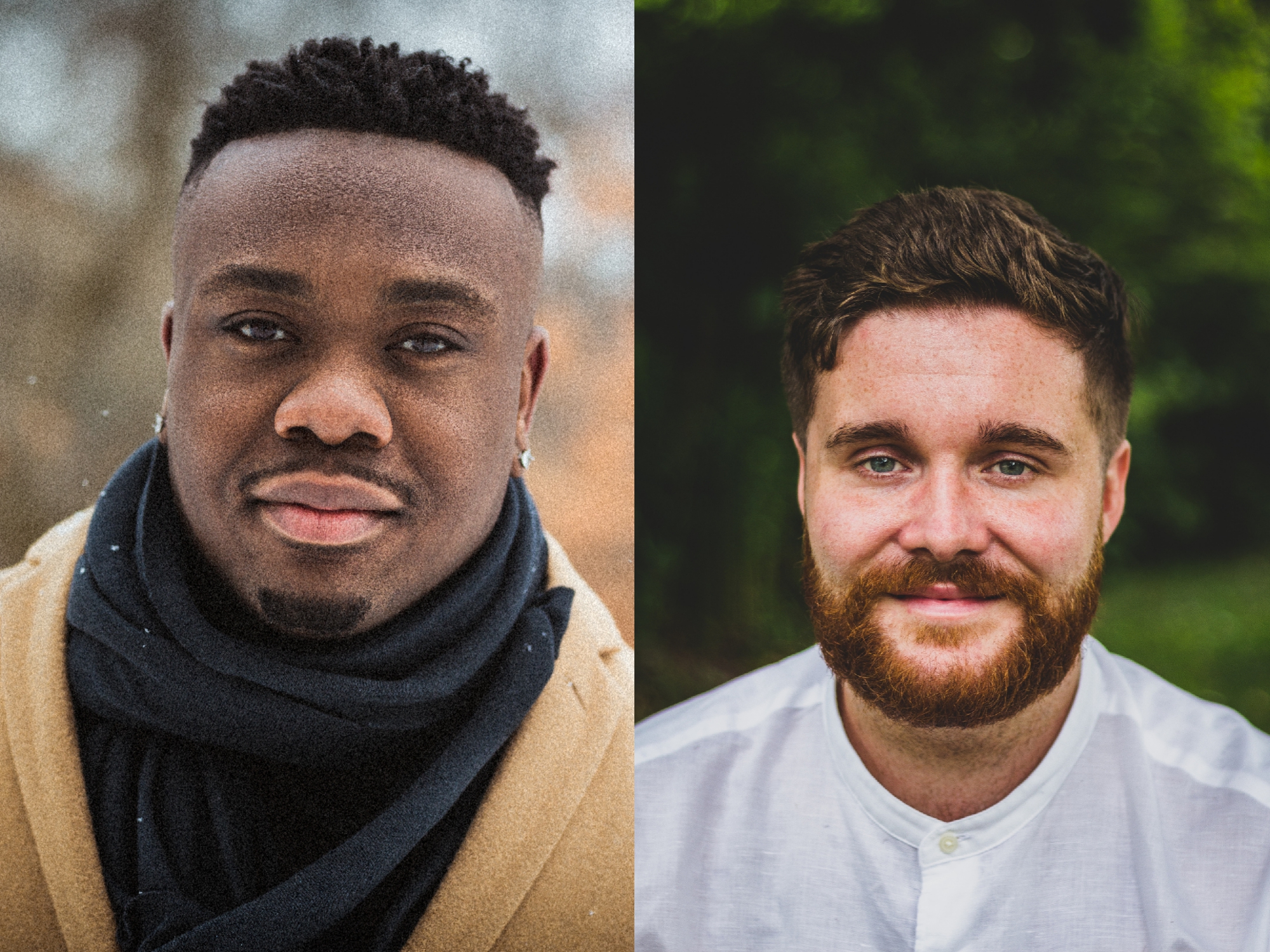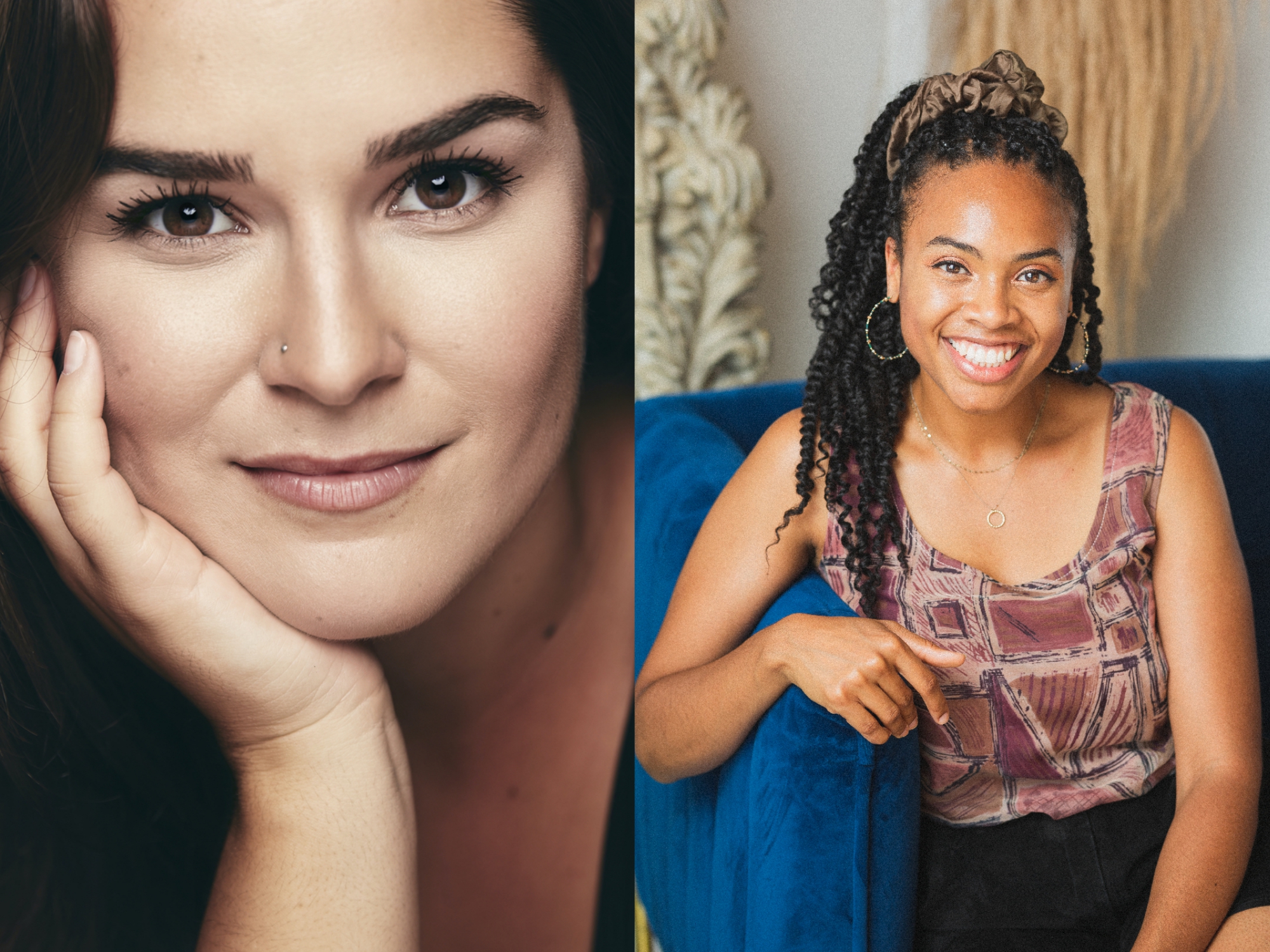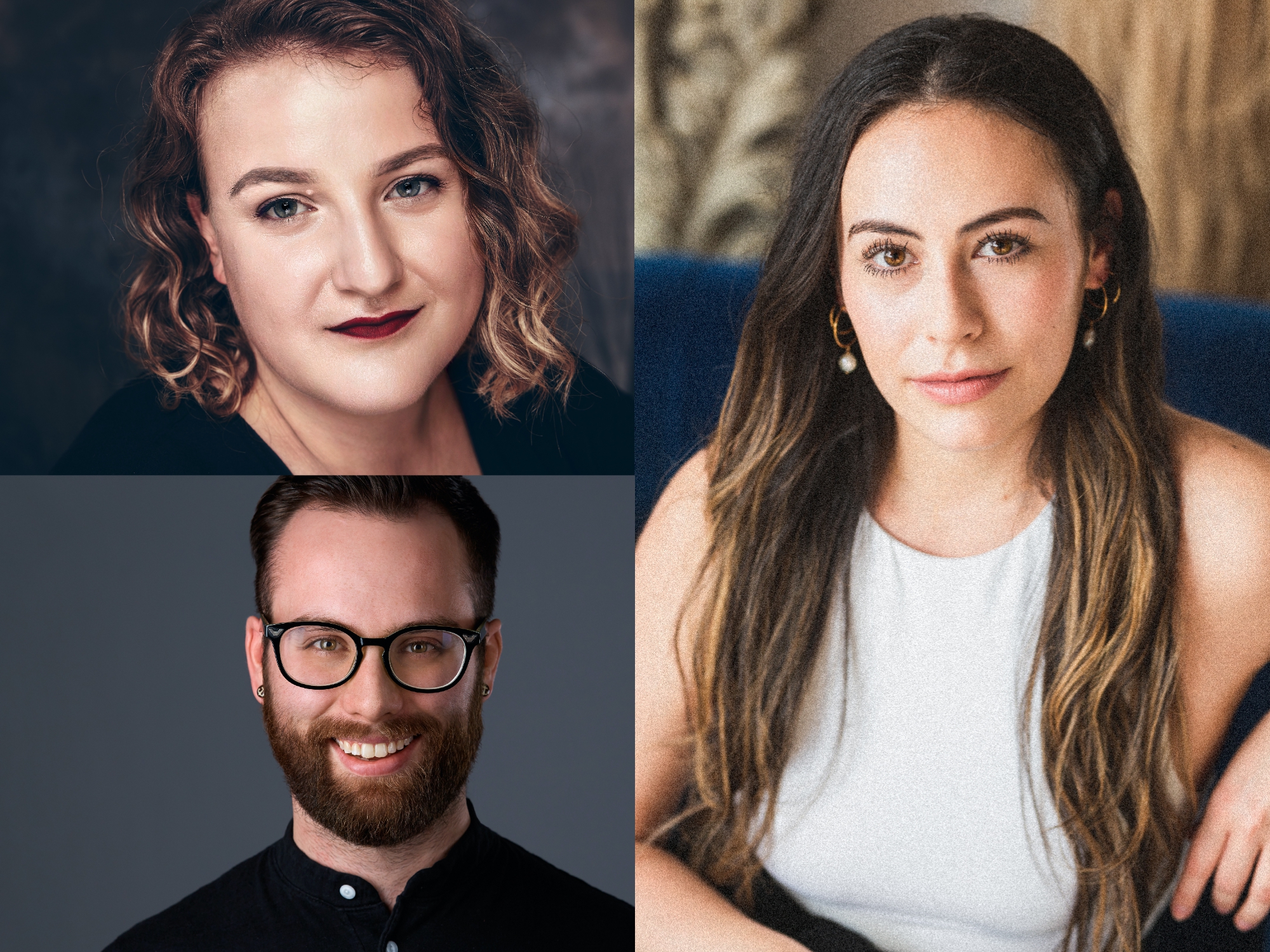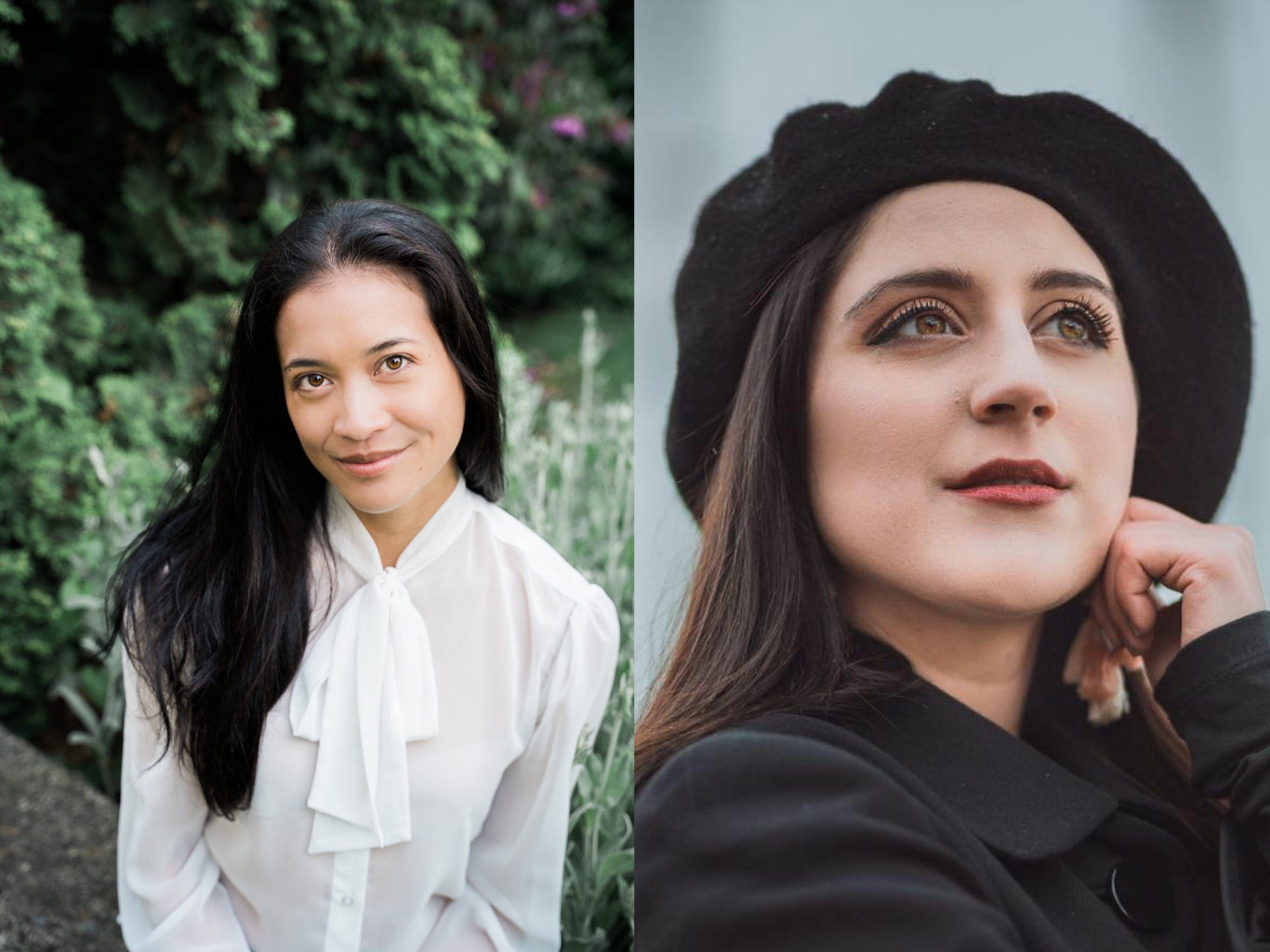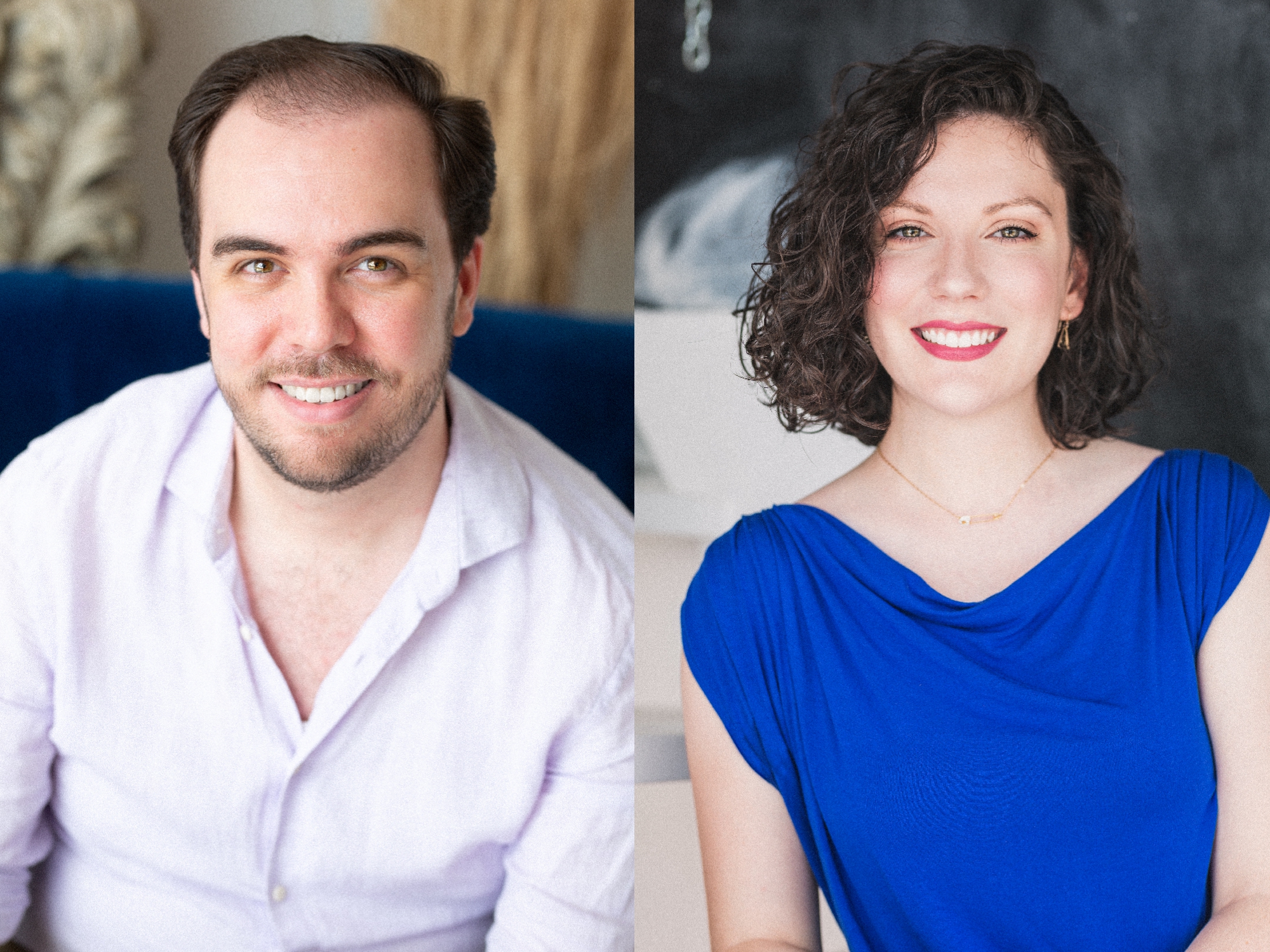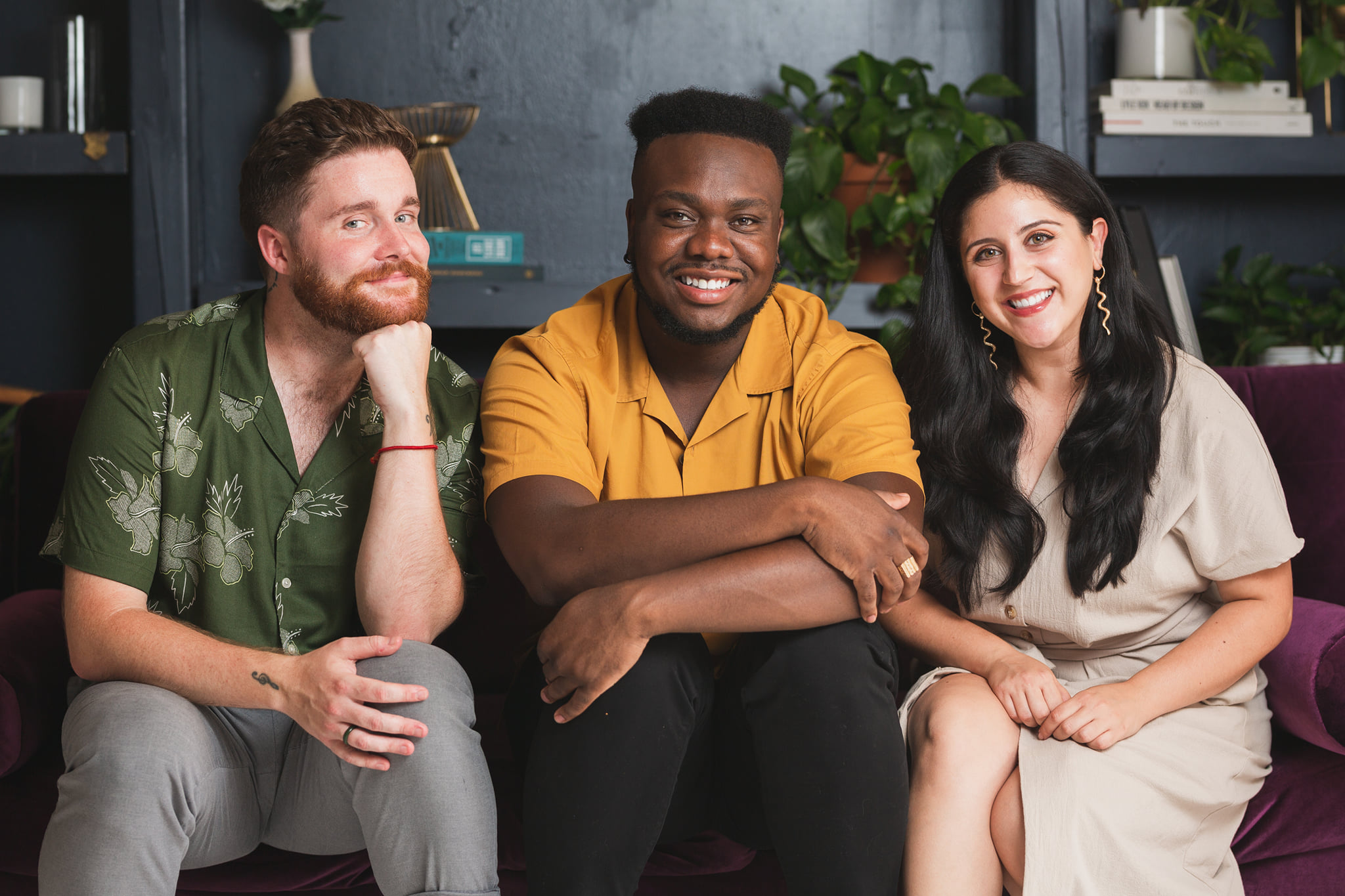Founded in 2020 by some of Canada’s most exciting emerging artists, Opera InReach is out to revolutionize the concept of opera outreach. From specially curated curriculum to ongoing relationships with schools, Opera InReach has a mission to make opera and the performing arts a standing presence in Canadian schools – and more importantly, to make sure it reflects the real-life worlds of 21st-century students. We spoke with the Opera InReach team, led by founders Andrew Adridge, Daevyd Pepper, and founding director of operations Daniela Agostino, about their extraordinary efforts:
What was the impetus to start Opera InReach?
Andrew Adridge (he/him): “Opera InReach was born out of two very poignant times in history, the COVID-19 pandemic and the re-spark of the Black Lives Matter movement around the world. This time forced the world to stop and listen and I do not believe it was coincidental. What had been a conversation to host a concert after the pandemic was given reason to become much more.”
“Opera InReach for me was the answer to the burning question of, ‘Who am I if not a Black man, in my profession?’ Finding a legitimate identity within the Eurocentric world that I had tried so desperately to belong to has been an uphill battle, to say the least. I had turned my mind away from the microaggressions in an effort to seem more comfortable and easy-going. I had suppressed my identity to seem normal. There wasn’t a chance for me to develop in a healthy way because the structures in place were ones that were not designed with people of my colour’s health in mind. There is a need now to understand that art and equity go hand in hand, and that through our art making we are constantly searching for ways to reach and engage with those who feel excluded, overlooked, unheard, and underappreciated.”
Daevyd Pepper (he/him): “The more we work on developing our programs and the more we research our next steps, the more dimensional the impetus that started Opera InReach becomes. My ardor in the beginning sparked out of allyship, my queerness, the desire to empower youth, and my frustrations with the current systems. But as I continue to grow and educate myself on these topics, I divine even more feelings that were not as apparent in the beginning.
“I think of the donor events and parties where I tell some kind benefactor that I’m from a small town and they say, ‘Wow, how does someone from there become an opera singer?’ Like it’s so novel a backwoods hillbilly can sing high C. How I wish I replied with a quasi Regina George in Mean Girls remark such as: ‘So you agree? That arts education is city centric and we should increase access to the arts in rural and remote areas of the province?’
“I believe that not only should opera reflect its present-day society but it needs to. In order for this to happen everyone has to be invited in with the expectation that they play as much of a role in creating opera as composers, librettists, artists and other professionals do. What is an artform without its muse?”
How did you personally get involved in opera?
Jonelle Sills (she/her): “I got involved in opera through my previous voice teacher, Stephanie Bogle. When I started my undergrad at York University, I had zero experience with singing any operatic repertoire. She gave me suggestions of music to learn and music to listen to. The more I learned the more intrigued I became about the genre and being a singer of opera.”
Kallie Clayton (she/her): “I was already in my second year of a Music Diploma focused on singing and songwriting when opera appeared on my radar. While I had started voice lessons at a young age and worked on the RCM Voice curriculum, my awareness of opera had more to do with Bugs Bunny than it did, say, Mozart or Donizetti. I was lucky to see one of my colleagues perform the infamous ‘Doll Song’ and thought, ‘I want to do THAT.’ There was something about the athleticism and technical challenge that operatic singing presented that hooked me. As my knowledge and experience of the art form grew, I realized that the real allure of opera was its truly interdisciplinary approach to storytelling.”
How would you describe the current/traditional method of opera outreach? What should change about that model?
Anna Theodosakis (she/her): “The traditional method of opera ‘outreach’ sees artists presenting a taste of their passion to students over the course of a couple hours, and then leaving. The main issue with this model is that the students are left to process what they experienced on their own without further resources. A preferable model is that of ‘engagement’ where the students not only learn from the opera artists but also share their artistic passions with the opera artists. This is a much more reciprocal approach that allows both parties to leave feeling seen and inspired to learn more.
“Another important aspect of the engagement model is fostering relationships and opportunities with the students after the initial session. Opera InReach is providing these opportunities through access to one-on-one mentorship as well as a wealth of resources on their social media and YouTube, which are familiar platforms for students.”
Luka Kawabata (he/him): “Outreach initiatives that feature a polished performance provide a figurative finish line for people starting out, but there is no context given for the collaborative nature of the artform; for the mistakes made, or the number of people involved. I’ve often found that it is in the process that everyone learns the most.
“Opera InReach is seeking to change how that relationship between mentor and student can be considered, in order to help guide the next generation over a more sustained period of time and answer the questions that become unavailable after the performance is over.”
How do you think young people can be realistically and consistently exposed to opera and the performing arts?
Spencer Kryzanowski (he/him/his): “Realistically, I believe that the best way to expose young people to opera, at least in Alberta, is to build lasting relationships with teachers in elementary and secondary schools and to create ongoing opera outreach programs catered to those schools and classes. In doing so, we are bringing opera to them, building on curriculum learning, and providing a direct educational pathway that doesn’t require students to spend money on external opera education programs. By building relationships with students and teachers and scheduling regular, ongoing class visits, the learning opportunities we offer are much broader than if we were to simply visit classes on a ‘one-off’ basis.
Gwen Yearwood (She/her): “I think that it’s important to show young people how fun opera can be. There is a (well deserved) stigma that our art form is only for old, rich, snooty, white people. Those of us who work in the industry have long contributed to this stigma by being in the habit of taking ourselves and our work too seriously and catering to one demographic. If it isn’t fun, then what’s even the point? Show them not only what opera is but what it could be and offer kids a way to participate, to make changes, to be creative, and messy. Once you feel the joy and exhilaration of creating something amazing, you’re hooked.”
Kayla Ruiz (she/her): “I feel it’s important to show that having a career in opera isn’t an impossible thing, and I think a lot of people have this notion that opera is just too hard (it definitely can be at times). Social media can be a useful tool, and I think it is important for students to be exposed to more light-hearted content that can provide them with information or small looks into opera. If we can show our youth that not everything in opera is perfect and that we as artists have our own struggles – whether it’s learning notes, the language, or literally not being able to sing one specific note which drives us crazy – perhaps they will find that more interesting and relatable!”
What has Opera in Reach done to create sustainability in education and outreach?
Perri Lo (she/her): “At Opera inReach, we create sustainability in education and outreach through the entire arc of our engagement with students, from their first introduction into opera through our creative and accessible sessions, to the immersive activities with awareness to current social and political events. We are there every step of their journey as they explore what opera means to them, personally. A sustainable relationship with younger generations in their opera education is the first step to sustainability for opera as a powerful artform.”
Daniela Agostino (she/her): “To continue on that, the fact that we are able to offer our programming and mentorship digitally ensures that we can reach as many communities as possible, without geographical restraints. We know that the outreach should not be limited to just the future singers, but also, the future opera goers, stage managers, directors, and all the moving parts in this art form. We took care in ensuring that not only all people were invited to the table, but that all facets of the operatic community were invited, too.”
For you personally, what would be a measure of success for Opera InReach’s efforts?
Nicholas Borg (he/him): “I would consider a measure of success for our efforts to be if Opera InReach can create a space for the operatic genre to be relatable and accessible to anyone who wants to connect with opera, no matter their background. Most importantly, I would consider this endeavour successful if, through Opera InReach, a student discovers something about themselves: a character in an opera to whom they can relate, a performer or creator who inspires them to express themselves creatively, a piece of music that moves them in a way they haven’t felt before, a curiosity about the arts, or the empowerment to try new things and imaginatively collaborate with others.”
Lyndsay Promane (she/her): “For me, one measure of success for Opera InReach’s efforts would be students feeling empowered and being able to visualize themselves in a number of roles in the theatre and music industry. Through OIR’s efforts, my hope is that the next generation can see themselves not only excelling in a variety of roles that suit their strengths and personalities, but finding fulfillment in them as well.”
Andrew Adridge (he/him): “It’s hard to measure success in what we are trying to create because in a lot of ways, we are the model that will help to determine what success looks like in opera outreach. I want Opera InReach to be the missing step on the pathway to belonging in opera that does not exist for many of our oppressed communities. If I can hear a student say ‘I never knew that opera could be that’ or ‘I never knew that I opera could look like me’ I think I will have achieved what I set out to achieve with this project.”
Daevyd Pepper (he/him): “In a nutshell, a measure of success for me is knowing that one day, one of our students will be playing Fortnite with their friends and while they are flying a helicopter they will tell them that it is Wagner’s ‘Ride of the Valkyries’ playing in the background. They will then hopefully go on to talk about these super dorky but loveable opera singers who delivered an actually interesting lesson on opera that actually made sense. That will then lead them to speak about the opera mentor with whom they spent the last seven weeks learning about Wagner’s operas and how they began writing their own opera based on their favourite fantasy novel.
“It may seem like too specific of an outcome, but I hope the message is clear. The measure of success of our programming may be hard to quantify but I want the communities we work with to know that we care and we want them to find their own way into opera.”

